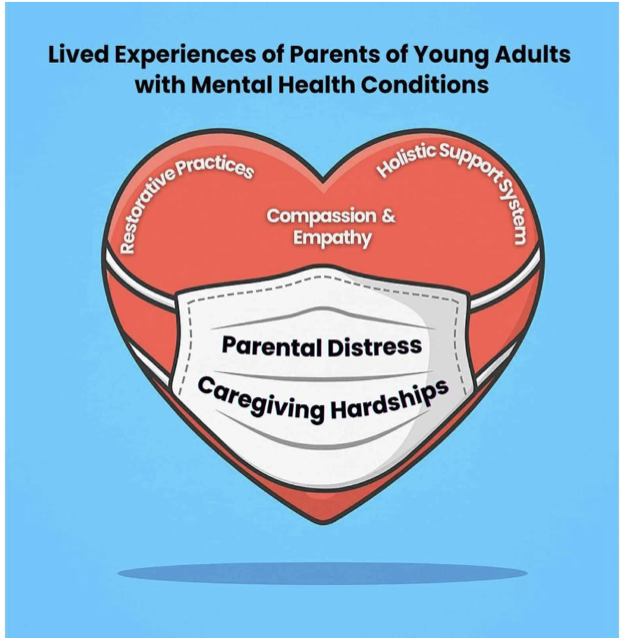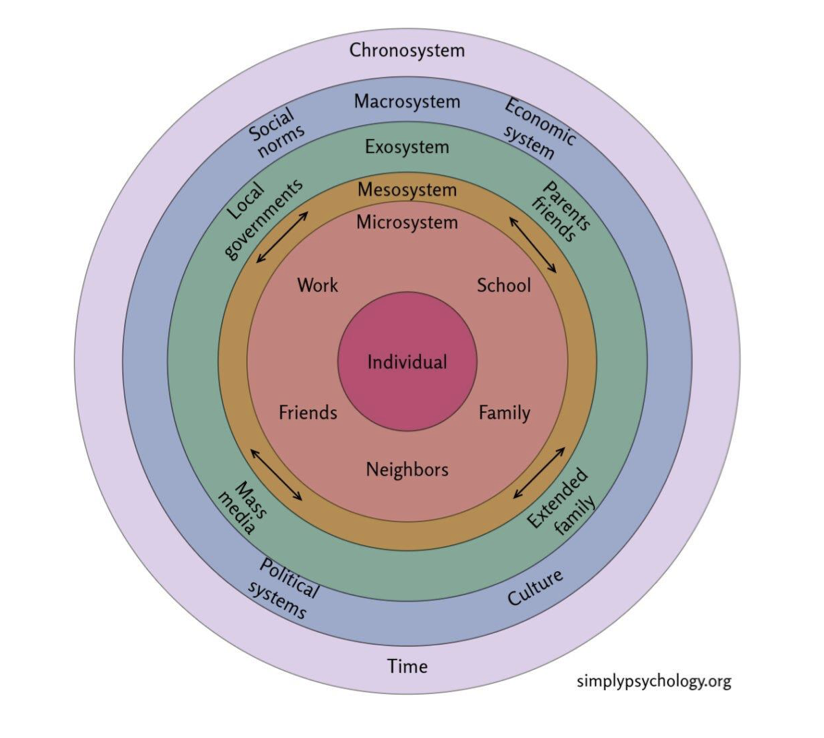Abstract
Crucial in every transition in the life span is the role of parents. Many young adults face a challenging journey during the post pandemic era which affected their mental health. This study aims to investigate the lived experiences of parents of Filipino young adults with mental health conditions. Criteria in choosing the participants are parents with young adults diagnosed with a mental condition and residing in Cavite, Philippines. Seven parents met the criteria and voluntarily agreed to become the participants of the study. The researchers employed interpretative phenomenological analysis (IPA) to delve deeply into the experiences of parents. Findings revealed the group experiential themes (GETS) derived from the narratives – parental distress, caregiving hardship, compassion and empathy, restorative practices, and holistic support system. A framework “masked heart” concludes the journey as it represents parents who may experience hardship but with compassion and empathy, wholeheartedly supported the young adults.
Research ID
Citation Generator
Cite This Research Manuscript
Figures


References (APA)
- Al Yahyaei, A., Al Omari, O., Abu Sharour, L., Cayaban, A. R., Shebani, Z., Al Hashmi, I., ALBashtawy, M.,Alkhawaldeh, A., & Alhalaiqa, F. (2024). The lived experience of parent caregivers of adolescents with mental illness: A phenomenological study. International Journal of Community Based Nursing & Midwifery, 12(1), 2–12.https://doi.org/10.30476/IJCBNM.2023.100667.2375
- Cashin, A. (2024, July 23). On edge: Understanding and preventing young adults’ mental health challenges. Making Caring Common. https://mcc.gse.harvard.edu/reports/on-edge
- Chavez, M. L., & Manaois, J. G. (2025). Understanding the experiences of middle-aged Filipino parents of children with undiagnosed neurodevelopmental conditions in rural northern Philippines. International Journal of Social Science and Education Research Studies, 5(4). https://doi.org/10.55677/ijssers/v05i04y2025-02
- Department of Health (DOH). (2023). National Mental Health Program annual report.
- Fakhrou, A. A., Adawi, T. R., Ghareeb, S. A., Elsherbiny, A. M., & AlFalasi, M. M. (2023). Role of family in supporting children with mental disorders in Qatar. Journal of Child and Adolescent Mental Health, 45(3), 123–135.https://doi.org/10.1016/j.jcamh.2023.08.005
- Fernández-Ávalos, M. I., Pérez-Marfil, M. N., Ferrer-Cascales, R., Cruz-Quintana, F., Clement-Carbonell, V., & Fernández-Alcántara, M. (2020). Quality of life and concerns in parent caregivers of adult children diagnosed with intellectual disability: A qualitative study. International Journal of Environmental Research and Public Health, 17(22),8690. https://doi.org/10.3390/ijerph17228690
- George, E. S., Kecmanovic, M., Meade, T., Lensen, S., Andersson, M., & Gebski, V. (2020). Psychological distress among carers and the moderating effects of social support. BMC Psychiatry, 20(1), 154. https://doi.org/10.1186/s12888-020-02571-7
- Guy-Evans, O. (2024, June 19). Bronfenbrenner's ecological systems theory. Simply Psychology.https://www.simplypsychology.org/bronfenbrenner-ecological-systems-theory.html
- Harries, C. I., Smith, D. M., Gregg, L., & Wittkowski, A. (2023). Parenting and serious mental illness (SMI): A systematic review and metasynthesis. Clinical Child and Family Psychology Review, 26(2), 303–342.https://doi.org/10.1007/s10567-023-00427-6
- Havighurst, S. S., Keating, L., & Franks, H. M. (2020). The role of parents in mental health prevention and promotion: A review of the literature. Australian & New Zealand Journal of Psychiatry, 54(6), 585–596.https://doi.org/10.1177/0004867420912108
- Heiman, T. (2021). Parents’ voice: Parents’ emotional and practical coping with a child with special needs. Psychology, 12(5), 675–691. https://doi.org/10.4236/psych.2021.125042
- Holmes, C., Zeleke, W., Sampath, S., & Kimbrough, T. (2024). “Hanging on by a thread”: The lived experience of parents of children with medical complexity. Children, 11(10), 1258. https://doi.org/10.3390/children11101258
- Kaynak, Ö., Whipple, C. R., Burma, R., Verdia, S., Sturges, N., Saylor, E., & Kensinger, W. S. (2024). “Everyone blames you”: Stigma and caregiver burden among parents of children with substance use disorder. Journal of Family Psychology, 38(8), 1179–1188. https://doi.org/10.1037/fam0001266
- Knafo, M., Laor, N., & Ziv, Y. (2022). Parental stigma towards children with mental health problems: Relationships with help-seeking behavior and perceived social support. Social Psychiatry and Psychiatric Epidemiology, 57(1), 121–129.


